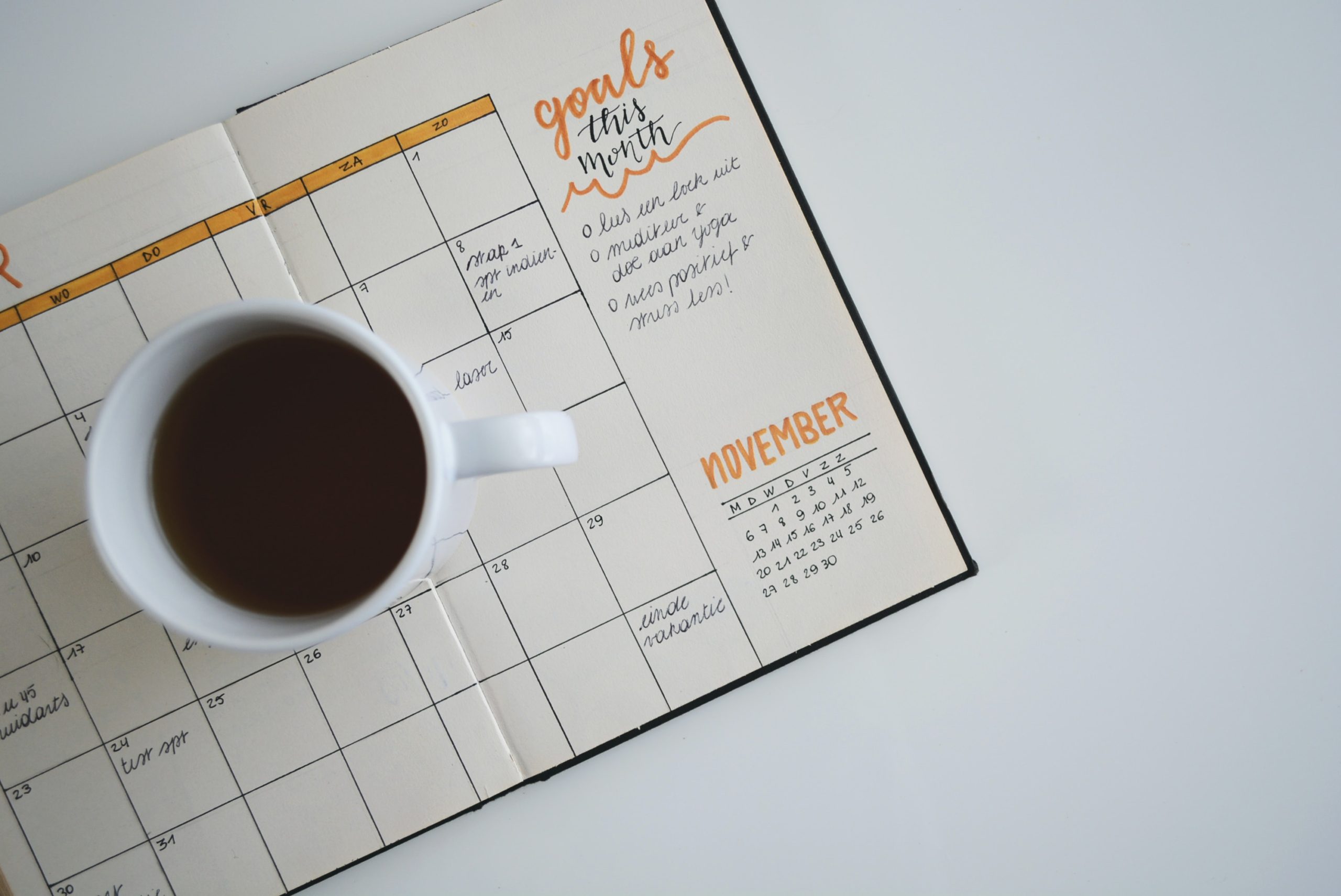If you struggle with anxiety, depression, or another mental health disorder, you know how easily these states of mind can upend your plans. They can make it hard to get out of bed, much less make the bed or make yourself a healthy breakfast. Worries, fatigue, and strong emotions can make it hard to focus, which makes it harder to complete tasks, which means you can easily become overwhelmed.
Enter routines.
A routine is a standard way of doing things. You might have a routine for certain chores at home (take out the garbage on Wednesday, do laundry on Sunday) or tasks at work (work on project #1 in the morning, project #s 2-5 in the afternoon). Most of us have bathing and grooming routines. We might have a bedtime routine, a series of tasks we perform that help us get ready to sleep.
When you create routines for yourself, you support your mental health. According to Mental Health America, people who follow daily routines are better able to cope with problems that arise with their health or stressful life events. Routines can improve your sleep, your diet, and your fitness, all of which create better mental health.
Some Misconceptions About Routines
Routines, as helpful as they can be, get a bad rap. We accuse them of being boring, or rigid, or of taking away our freedom and spontaneity. We rebel against them, preferring to sleep in, skip work, or grab fast food instead of cooking the meal we’d planned.
Perhaps this concept of routines as stern authority figures comes from childhood or from behavioral health issues, like ADHD, that make it hard to stay on track. Or perhaps we have too many routines and approach them too strictly. Sometimes we do need a break, and sometimes we can cling so hard to one way of doing things that we miss out on other opportunities.
Still, as a whole, routines, when used appropriately, are a wonderful tool for decreasing stress and improving self-esteem.
Some Benefits of Routines
Instead of seeing routines as the enemy, let’s explore how they can actually be like a very good friend who has your best interests at heart.
When you have routines in your life, you get things done. And considering that NOT getting things done is a major source of stress for many people, a routine is like an angel in sturdy shoes coming to the rescue.
Routines help you prioritize, focus, and use your energy efficiently. If you have a long list of things that you have to do daily, assign a time for each of them and do them at the same time each day. This eliminates the stress of wondering whether you’ll run out of time. As you settle into a routine, you’ll feel a sense of accomplishment. You’ll start to see that it’s possible to set goals because you know you’ll have time to work toward them.
Routines also help you see where you need to set boundaries in your life. Maybe you need to spend less time on social media, for example. Maybe you need to leave work on time to get home for dinner–and refuse to look at work email until the next day. Maybe you need to go to bed earlier, even if it means less TV time.
If you struggle with anxiety or depression, you might even start to see that you don’t have time to spend all day caught up in your emotions. You might be able to dedicate a small amount of time each day to feeling the worry or the sadness–and then set it aside until the next day.
Good Routines for Your Mental Health
Mental health requires good sleep, good food, good work, good times with family and friends, and good times relaxing by yourself. Take a moment to decide which of these mental health aspects is most important for you right now, and start by setting a routine that will support that.
Maybe you feel like your whole life is a mess and needs an overhaul. But maybe you suspect that underlying everything is a lack of quality sleep. So set a bedtime routine for yourself. Decide to go to bed and wake up at the same time every day. Decide to turn off your screens an hour before bed and wind down with an activity that is truly calming.
Even though more daily routines are associated with lower levels of stress, don’t try to add a bunch of routines at once. Start by adding one routine. See how that goes. Once it becomes a habit, consider adding another one. Remember that it takes an average of 66 days for a behavior to become a habit, but for some people it can take much longer. Be patient with yourself, and don’t give up.
If anxiety, depression, or another mental health issue is getting the better of you, it’s not your fault. Reach out for help. Highland Hospital in West Virginia offers compassionate, professional treatment for children and adults struggling with behavioral health issues.










